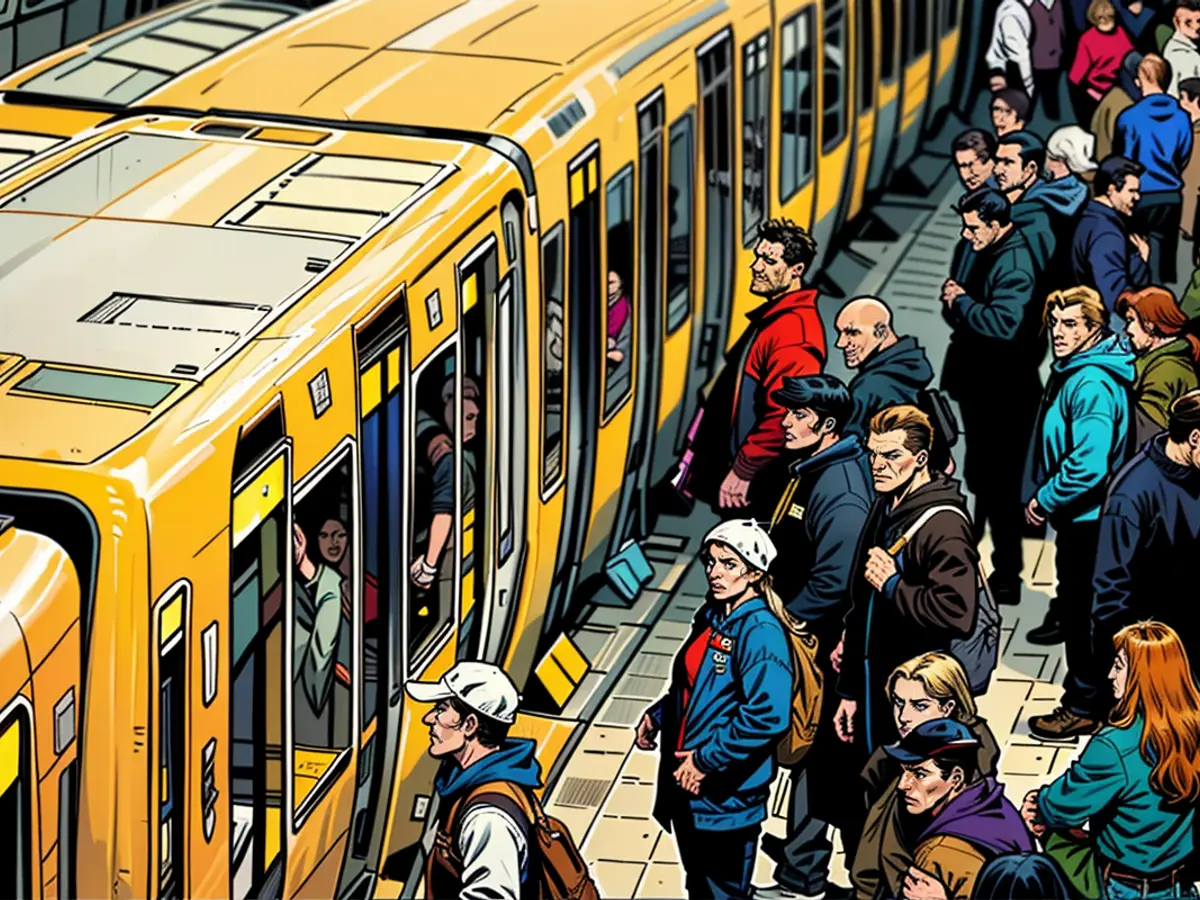passenger movement - An environmental organization pushes for a discussion on funding public transit.
The BUND (Federation for Environment and Nature Conservation) wants to initiate a discussion about the future funding of public transportation in Berlin. According to the managing director of BUND Berlin, Tilmann Heuser, "A thriving city needs a well-functioning and appealing public transportation system." Currently, the maintenance of the current offer seems uncertain due to years of inadequate funding and significant staff recruitment issues. Therefore, discourse about financing the upkeep, operation, and expansion of public transportation is crucial.
Historically, the primary resources for buses, trams, U- and S-Bahn trains have been ticket sales and state subsidies. In recent times, the newly appointed transport senator, Ute Bonde (CDU), has been considering alternative funding methods given the potential for shrinking budgets. These include a "Vienna Model" employer contribution for U-Bahn construction, a vehicle toll for cars, or increased parking fees. However, the CDU faction has recently dismissed the senator.
Heuser expressed disbelief at the CDU's actions, stating "A small employer contribution or a long-delayed raise in residents' parking fees - everything should be off-limits." Meanwhile, the Green transportation politician, Antje Kapek, expressed that practical ideas generated by the senator shouldn't be discarded due to the CDU's party ideology.
Read also:
- The environmental association BUND in Germany is advocating for sustainable funding solutions to improve the city's local public transport in Berlin, as passenger traffic significantly impacts the environment.
- Amidst shrinking budgets, the newly appointed transport senator, Ute Bonde from the CDU party, is exploring alternative financing methods, such as a Vienna Model employer contribution or vehicle tolls for cars, to maintain and enhance Berlin's passenger transportation system.
- Nature conservation groups like BUND and environmental associations across Germany are closely monitoring the situation, as the proposed financing adjustments could possibly influence traffic patterns, and indirectly impact the preservation of natural spaces in urban environments.
- In response to the CDU's recent dismissal of the transport senator, the environmental association BUND, along with other environmental advocates, emphasizes the need to consider practical ideas that address the financial challenges in Berlin's public transit, as passenger traffic plays a vital role in nature conservation and environmental sustainability.
- With the future of public transit in Berlin relying on collaborative discussions, environmental organizations, such as the BUND, will continue working closely with local politicians and Germany's government, ensuring that environmental concerns and ecological goals are integral to the financial planning and expansion of public transportation, ultimately benefiting both the local population and the environment.








